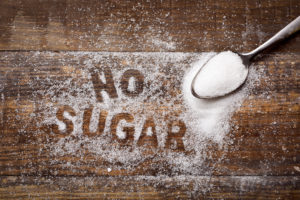
The study published in Science Translational Medicine used mice to study the impact of a high-sugar diet on the gut. For seven days, the mice were fed a water solution with a 10 percent concentration of three dietary sugars—glucose, sucrose, and fructose. Researchers recorded that the mice were either genetically predisposed to develop colitis, or those given a chemical that induces colitis, developed more severe symptoms if they were first given sugar.
Gene-sequencing techniques were used to identify the types and prevalence of bacteria found in the mice’s large intestines both before and after they received the sugar regimen. After seven days of the mice consuming the sugar-water, researchers recorded significant microbial population changes inside the gut. This was especially true for those fed glucose.
The Good and Bad Gut Bacteria
The gut bacteria known to produce mucus-degrading enzymes such as Akkermansia were found in greater numbers in the mice who were given the sugar diet. Other types of good bacteria commonly found in the gut, such as Lactobacillus, became less abundant. Researchers also noted evidence of a thinning of the mucus layer that protects the lining of the large intestine as well as signs of infection by other bacteria.
“The mucus layer protects intestinal mucosal tissue from infiltration of gut microbiota,” the researchers explain. “Higher abundance of mucus-degrading bacteria, including Akkermansia muciniphila and Bacteroides fragilis, in glucose-treated mice is, therefore, a potential risk for the intestinal mucus barrier.
Zaki, a UT Southwestern professor of pathology, explains, “Due to the erosion of the mucus layer, gut bacteria were in close proximity with the epithelial layer of the large intestine in glucose-treated mice. Breaching of the epithelial barrier is the key initiating event of intestinal inflammation.”
With an increasing high-sugar diet in the Western world, it is important to know the consequences of such a diet. This study confirmed that all three simple sugars profoundly altered gut microbiota composition, with glucose having the greatest effect.
Previous studies have shown that gut microbiota can change rapidly with a change in diet in both mice and humans, which could lead to conditions such as colitis. “Our study clearly shows that you really have to mind your food,” says Zaki.
Colitis is a form of inflammatory bowel disease (IBD) that can cause persistent diarrhea, rectal bleeding, and abdominal pain. Approximately three million American adults suffer from IBD (which includes Crohn’s disease), and colitis is now beginning to show up in children who historically never suffered from it previously.
The researchers now plan to further the study to analyze how high sugar intake could affect the development of other inflammatory diseases such as obesity, fatty liver disease, and neurodegenerative diseases like Alzheimer’s.